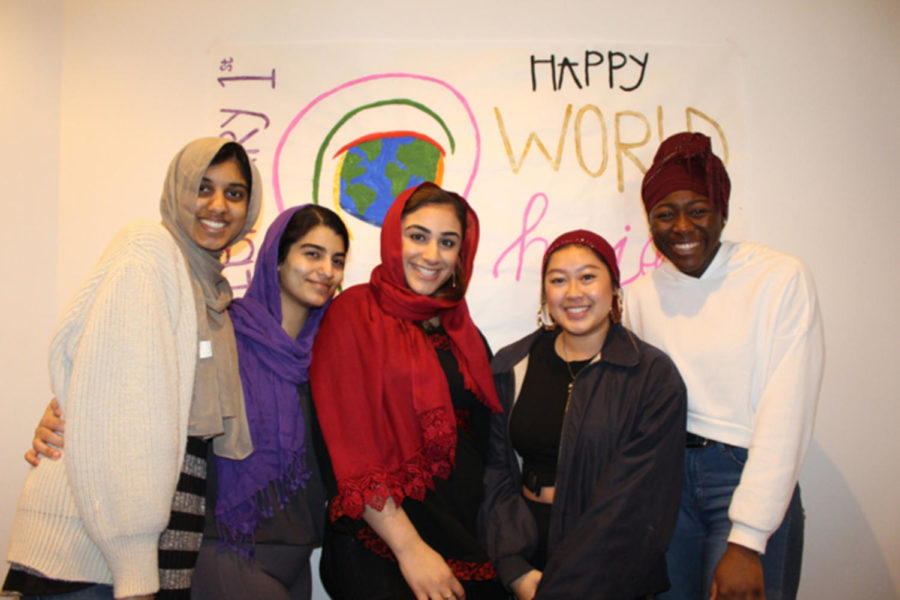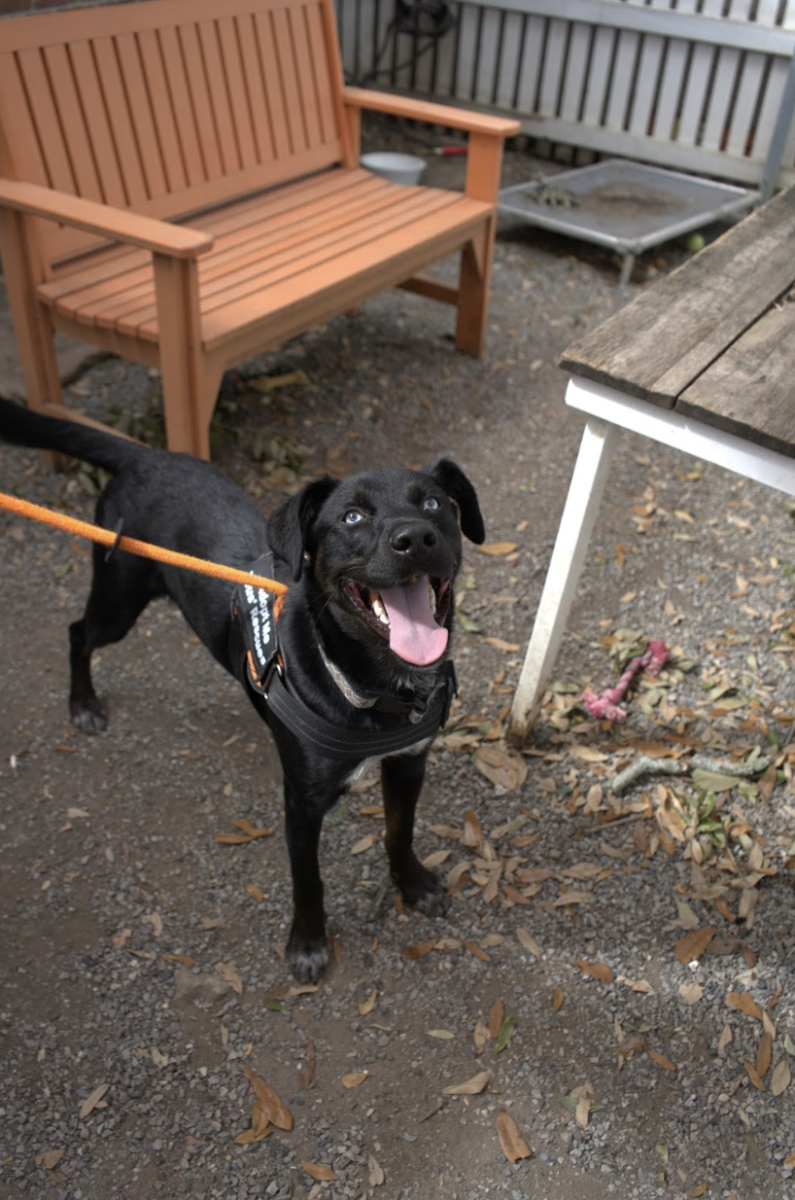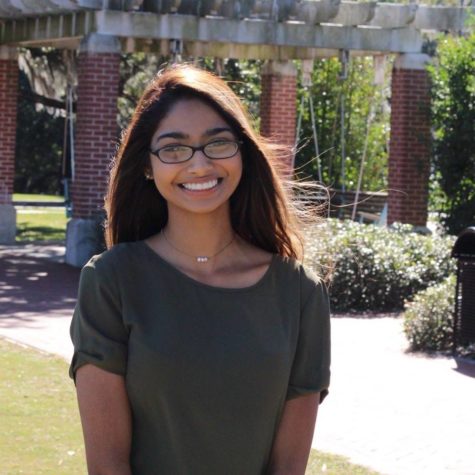Hijab-wearing Muslims, or hijabis, around the world are often labeled by members of other religions as oppressed — a stereotype Loyola’s Muslim Student Association hoped to combat by celebrating World Hijab Day on Feb. 1.
“I wanted to educate non-Muslims about the significance of the hijab and how beautiful the meaning behind wearing it is, which will ultimately promote newfound respect for the hijab community,” said Islam Nassar, president of the Muslim Student Association.
Student participants tried on hijabs in the Danna Center while members of the student organization helped adjust the scarves in hopes of spreading an understanding of what it feels like to walk around as a hijabi.
Those who tried on a hijab received a customized hijabi cookie and a photo booth was set up for the participants to capture the experience.
Kayla Corrigan, psychology senior, participated in the event to connect with the Muslim community around her.
“While wearing the hijab, I noticed for the first time that it isn’t as constricting as I first thought it was,” Corrigan said. “Each hijab was beautifully detailed.”
Muslim Student Association member’s faces lit up after seeing non-Muslims show an interest in their religion.
“We wanted to promote the fact that the hijab is not a form of oppression but merely a symbol of modesty in both behavior and dress,” Nassar said.
In Islam, the hijab is worn by women. However, male students also attended the event and took part in experiencing what it’s like to wear a hijab.
“It was very exciting watching non-Muslims try on hijabs,” Nassar added. “I could tell by their facial expressions that they have developed a newfound appreciation for hijabis and Islam as a whole.”
While some students were excited to wrap their hair with scarfs, others were cautious.
Katie Pham, arts and entertainment industry studies sophomore, asked about the message behind the hijab before feeling comfortable enough to try one on.
“I felt kind of out of place wearing the hijab since I’m not Muslim. But the event made me happy because I got to see Loyola students embracing and accepting the Islam religion,” Pham said.
The event attracted more than a dozen students interested in understanding why Muslim women decide to wear the hijab. Muslim Student Association members said they plan to host the event next year to continue to end stereotypes surrounding the hijab.
“Ignorant people force themselves to believe the ugly things they see on the media. Then they relate it to Islam, which ultimately makes hijabis a target for some people,” Nassar said. “I felt as if teaching one person about the significance of the hijab in Islam could help make a difference and sort of get rid of the ignorant thoughts that people may have had before.”













